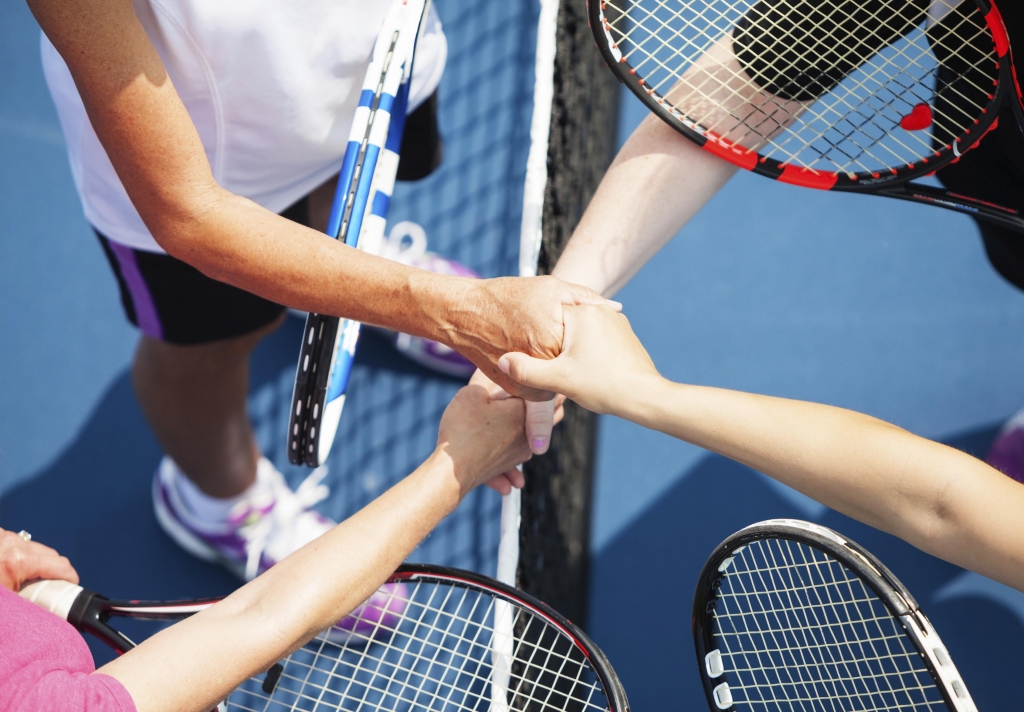
Everybody wants to win. Regardless of how competitive a child is, losing is no fun and every child handles it differently. What a child typically won’t have the capacity to understand is that there are many positives that can come from losing as well. Helping your child lose well and understand the learning that can come from it is huge for a child to not only grow as a competitor, but as a person.
This is written through the lens of tennis, but it applies to any loss, whether in sport, a spelling bee, or any other arena where there are winners and losers. Here are some great ways to help your kids handle a loss.
Always Emphasize Fun
We aren’t dipping too deep into psychology here, and this may seem obvious, but making sports fun for your kids is paramount. If they aren’t having fun, then there is no point in playing! Sports can be phenomenal for a child’s development physically, mentally and emotionally. It can teach them life lessons and instill great values in them. If they lose sight of why they play the game and get too focused on results, so many of the other positives can go out the window.
A tennis match is very unique in that your child is out there alone. They don’t have the support system of a team to pick them up when they are down, or share in the joy when they are up. This gives a child playing tennis so much potential to grow as a person as they win or lose out there alone, but also poses potentially crippling consequences if they are poor losers. As a parent it is your job to support them, win or lose, show them the good that can come from losing, and teach them how to act graciously in the process of losing. If they can have fun out there and enjoy the process, they will be able to lose like a winner, and will grow so much more as a person.
Empathize, Don’t Sympathize
A huge issue with parents these days is they baby their kids. Participation trophies replace first place trophies and parents are quick to console their kids and sympathize with them after they are upset with a loss. Of course you want to make your child feel better, but to sympathize will not help them grow or learn! Winning and losing is a part of life, and if children are sheltered from that their whole childhood then you are doing them a disservice.
The best thing you can do for a child after a loss is empathize with them. Hear them, understand why they are upset, and accept that they feel this way. When a child sees that you understand their feelings, they are able to move beyond the feelings of disappointment much easier. For example, if a child says, “I’m the worst tennis player,” instead of telling them they are not the worst tennis player say, “I know it feels like you are the worst tennis player right now.” They can then separate feelings from fact and move past it and ultimately learn from the loss.
[sc:optin-box-modal slug=”child-diy” linktext=’Bonus: Read “5 DIY Ways To Teach Your Kids Tennis”‘ bgcolor=”F8F1DE” linkcolor=”000000″ ]
Separate Your Child’s Value From the Outcome of the Match
In tennis as in life, sometimes playing or giving your best is not enough to win or achieve your desired result. You can play your very best tennis and come across an opponent who is simply better than you. It is so important as a parent to be able to separate this for your children. The outcome of a match is temporary, but their value as a player, and as a person, is permanent and constantly improving with practice and experiences. This is one of the most important lessons in tennis and losing. Your child giving their best and understanding it may not be enough will not only allow them to lose like a winner but will also help them grow and mature as a person.
Perspective and Goals
Rather than looking simply at wins and losses, help your child keep things in perspective with where they are on the learning curve. There are a few great ways to do this. Have your child set just a few goals before a match. Whether it is to double fault less than their last match or hit more forehands cross court, it gives them a concrete goal to reach for in the match, and allows them to achieve a victory regardless of the outcome of the match. By the same token, you can keep their results and performance in perspective by asking them questions like, “How long have you been playing?” or “When did you start working on our backhand volley?” and “How long does it take to perfect a shot?” This will allow them to step back and see just how far they’ve come without thinking about the fresh loss.
A healthy desire to win can be a very positive thing for any child in sport and in life. Managing loss is as important, if not more important, than that desire and the ability to actually win. It is up to you as a parent to help your child lose like a winner and help them to understand that loss is inevitable and not necessarily a bad thing. There is no one formula that will make your child a perfect loser, but if you are able to follow these general rules, you will be well on your way to raising a gracious loser, and a great human being.
Tennis is a phenomenal sport for a child’s development, and a terrific outlet to learn how to win and lose like a champion. PlayYourCourt has certified teaching professionals across the nation standing by to help your child become a great tennis player and you a proud parent. Their coaches will come to the location of your choice at a time that fits into your busy schedule. Check out the great pros in your area by clicking here!

